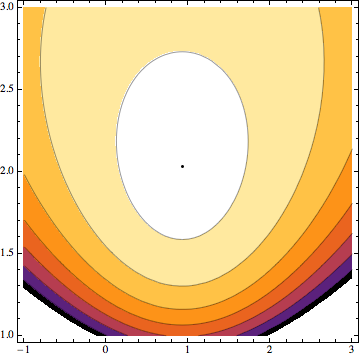I am a newbie and I'm trying to use Mathematica to obtain the symbolic Maximum Likelihood Estimation for a cumulative normal distribution. So far I have reached the step where I have the derivative of the log likelihood for both $\mu$ and $\sigma$, i.e. $ \text{score}=\left\{\frac{\partial \text{logL}}{\partial \mu },\frac{\partial \text{logL}}{\partial \sigma }\right\} $, or
$$
\left\{\sum _{i=1}^n -\frac{\sqrt{\frac{2}{\pi }} e^{-\frac{\left(\mu -x_i\right){}^2}{2 \sigma ^2}}}{\sigma \text{erfc}\left(\frac{\mu -x_i}{\sqrt{2} \sigma }\right)},\sum _{i=1}^n \frac{\sqrt{\frac{2}{\pi }} \left(\mu -x_i\right) e^{-\frac{\left(\mu -x_i\right){}^2}{2 \sigma ^2}}}{\sigma ^2 \text{erfc}\left(\frac{\mu -x_i}{\sqrt{2} \sigma }\right)}\right\}
$$
The problem is that when I try to solve when these expressions are 0:
Solve[score == {0, 0} && σ > 0, {μ, σ}]
Mathematica tells me that it can't solve it (Solve::nsmet: This system cannot be solved with the methods available to Solve).
Is this really such a hard problem or am I missing something?







Solve[ Thread[ score={0,0}]...]$\endgroup$mathematicaexpressions. cf the FAQ. $\endgroup$